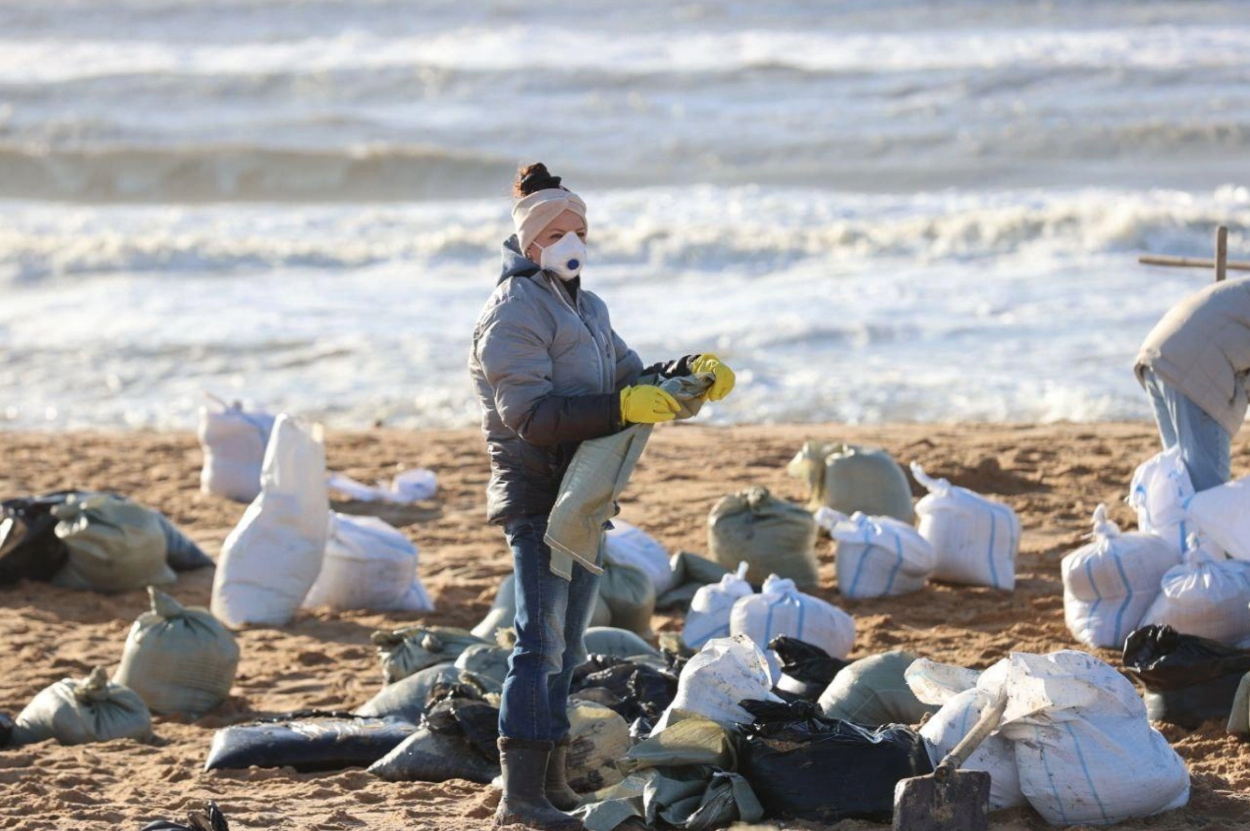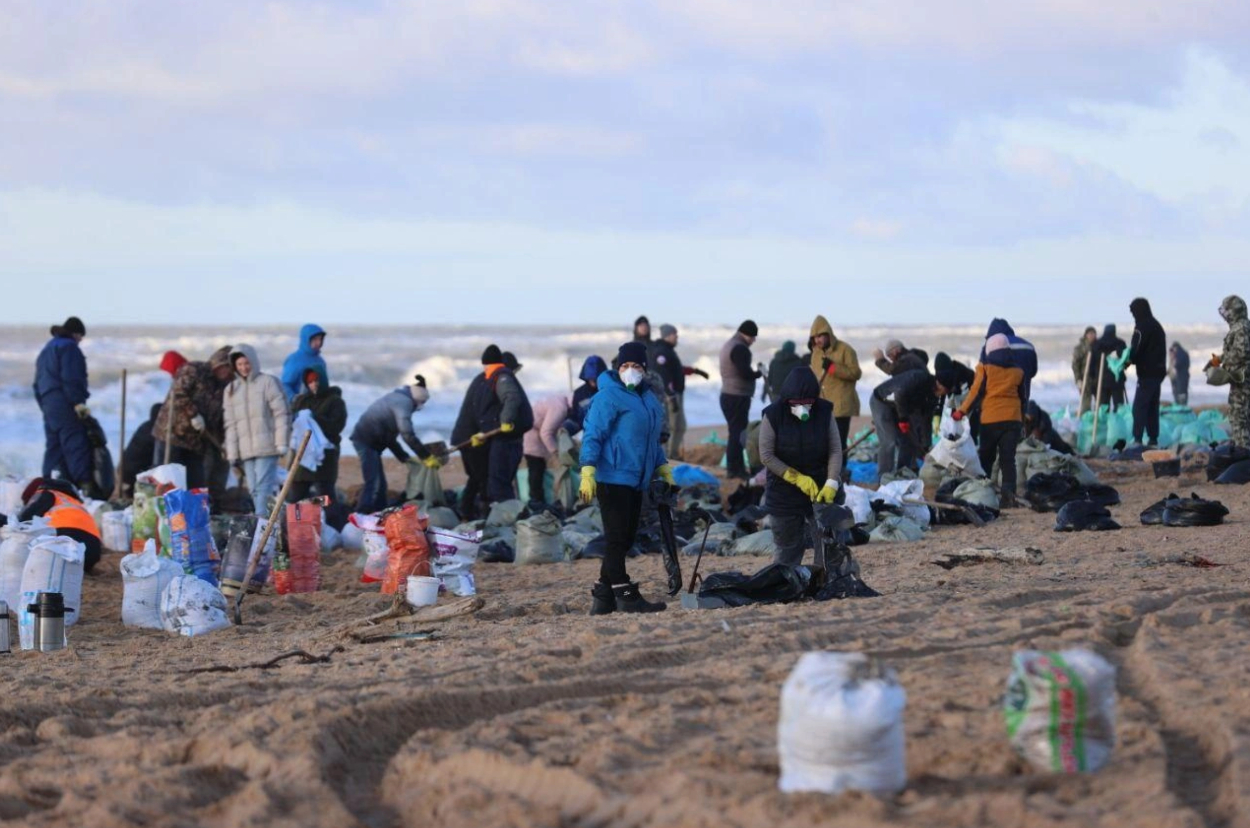49km of Black Sea Coast Affected by Worsening Oil Spill

Volunteers mobilise to tackle expanding Black Sea oil spill.
SUKHUM / AQW’A — The ecological crisis in the Black Sea continues to escalate, with the area of contamination from heavy fuel oil now covering 49 kilometres along the coast near Anapa, according to Russia’s Ministry of Emergency Situations (EMERCOM). The spill occurred following the sinking of two Russian tankers, Volgoneft-212 and Volgoneft-239, in the Kerch Strait during a severe storm on 15 December. Efforts to mitigate the environmental damage have mobilised thousands of volunteers and experts in a race against time to clean up the affected areas and rescue wildlife.
Massive Clean-Up Effort Underway
More than 4,000 volunteers are working to clean the polluted coastline, with efforts coordinated by local authorities and emergency response teams. Over the past 24 hours, workers have surveyed 29 kilometres of the shoreline, focusing on removing oil-contaminated sand and debris. Volunteers equipped with shovels, bags, respirators, and gloves have been deployed to heavily impacted areas, including Veselovka village in the Temryuk district.
Specialised patrols are monitoring a 70-kilometre stretch of coastline across the Temryuk and Anapa districts, supported by over 1,000 personnel and 100 pieces of equipment. Many volunteers have travelled from neighbouring municipalities such as Bryukhovetsky, Belorechensky, Novorossiysk, and Krasnodar to assist in the clean-up operations.

+ Black Sea Faces Environmental Crisis as Two Russian Tankers Sink
+ Severe Oil Spill in Black Sea After Tanker Disaster Sparks Environmental Crisis
Wildlife at Risk
The oil spill has had a devastating impact on marine life and coastal wildlife, particularly waterfowl. A rescue centre for birds has been established in Vityazevo, where veterinarians and volunteers are working to save birds affected by the spill. The oil clings to the feathers of waterfowl, impairing their ability to move and find food. Attempts by the birds to clean themselves often result in the ingestion of oil, leading to poisoning.
Dmitry Fedorov, a biologist and director of the Green Civilisation NGO, explained that affected birds require immediate professional care in specialised facilities to survive. “Oil contamination severely disrupts their ability to function and can be fatal without intervention,” he noted in an interview with RIA Novosti.

Long-Term Environmental Concerns
Environmental experts warn that the Black Sea region could face long-term ecological damage from the spill, potentially impacting local fisheries, tourism, and biodiversity. While the immediate response is focused on containment and clean-up, the full scale of the disaster may take months or even years to assess.
Authorities are urging volunteers and residents in the area to remain vigilant and report any further signs of contamination. Emergency response teams continue their round-the-clock efforts, but the enormity of the task underscores the significant challenges posed by one of the worst environmental disasters in the Black Sea's recent history.